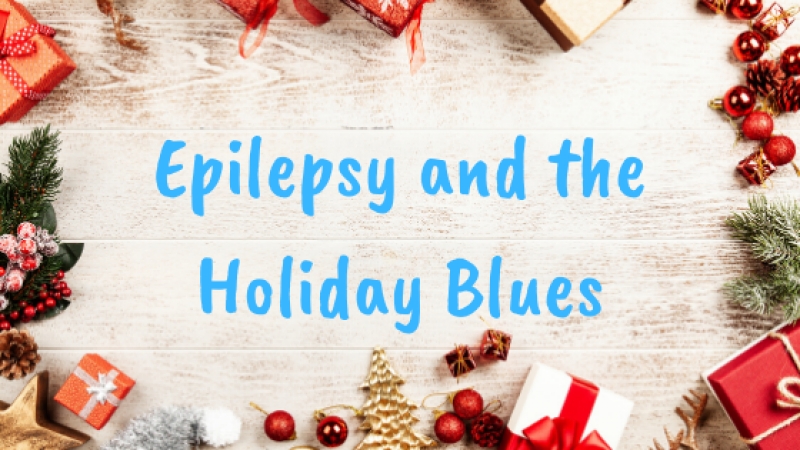Epilepsy and the Holiday Blues

Some of us might have felt the “Holiday Blues” at some point, which is when, around the holiday season, we start to have negative changes in our mood, lower energy and a feeling of moodiness.
This can also sometimes be known as Seasonal Affective Disorder, which occurs due to the change in the seasons and the decrease in daylight. The onset of Seasonal Affective Disorder often starts in the late fall/early winter and goes away in the spring/summer. Some therapies for Seasonal Affective Disorder can include:
- Phototherapy
- Also known as light therapy
- This type of therapy is where you sit for an hour a few feet away from a special light box designed to mimic natural outdoor light
- Medications
- You can get anti-depressants prescribed to you by a doctor
- You may also want to consult your neurologist as they may have an idea of the ways that your anti-epileptic drugs (AEDs) will interact with the anti-depressants
- Speaking with a Professional
- You may choose to speak with a counsellor, a psychologist/psychiatrist or a neuropsychologist/neuropsychatrist
- This can involve identifying and trying to change your negative thoughts and behaviours and learning ways to cope with Seasonal Affective Disorder
- You may also choose to employ techniques from Cognitive Behavioural Therapy (CBT) or learn how to manage your stress levels
- The Mind + Body Connection
- This can involve participating in things like relaxation techniques, deep breathing, yoga, tai chi, meditation, guided imagery or music/art therapy
Please see below for our top 10 tips to help people with epilepsy combat the “Holiday Blues”:
- Avoid overbooking yourself and allow enough time in your schedule for self-care
- Avoid overworking yourself and set reasonable expectations and goals for the holiday season
- Get enough sleep
- Take your medications on time
- Partake in festivities in moderation, trying your hardest to avoid alcohol
- Take some time to get some exercise, even if it is just a short walk
- Spend time with people who care for you and support you
- Take part in volunteering or help out a local charity
- Open up to others because you don’t have to face this alone
- If you feel down for days at a time, see your doctor about Seasonal Affective Disorder and one or more of the above treatments
We hope this holiday season, if you are feeling the “Holiday Blues” that you will consult with your doctor about one of these techniques or to learn more about Seasonal Affective Disorder.
Happy Holidays everyone!





